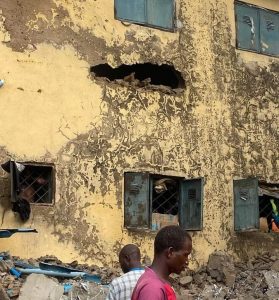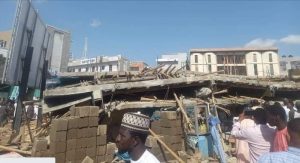Calls for State of Emergency as Civil Society Groups Decry Rising Insecurity in Nigeria

A coalition of civil society organisations, operating under the umbrella of the Civil Society Joint Action Group, has released alarming statistics regarding the state of security in Nigeria under President Bola Tinubu’s government. According to the group, at least 2,423 people have been killed and 1,872 kidnapped in the first eight months of President Tinubu’s administration, highlighting the dire security situation in the country.
Expressing their concerns at a press conference held in Abuja, Auwal Musa Rafsanjani, speaking on behalf of the Executive Director of the Civil Society Legislative Advocacy Centre (CISLAC), called on President Tinubu to declare a state of emergency on terrorism. The group urged the government to take immediate and decisive action to address the escalating violence and insecurity across Nigeria.
Mr Rafsanjani emphasized the need for the government to provide a clear timeline for security agencies to tackle the insecurity crisis effectively. He stressed that the coalition was deeply troubled by the deteriorating security situation in Nigeria, including the Federal Capital Territory, Abuja, and called for urgent measures to end the pervasive insecurity and hold perpetrators accountable.
Highlighting the scale of the security challenges, Mr Rafsanjani revealed that between 2019 and 2023, a total of 24,816 Nigerians lost their lives due to mass atrocities, while 15,597 persons were abducted. These figures underscore the gravity of the security crisis and the urgent need for decisive action from the government.
Despite President Tinubu’s assurances to address insecurity at the beginning of his presidency in May 2023, the coalition expressed disappointment at the lack of significant improvements. They pointed out that the number of killings and abductions has continued to rise, with 2,423 people killed and 1,872 abducted since President Tinubu took office.
The coalition highlighted various factors contributing to the security challenges in Nigeria, including terrorist activities in the northern region, banditry in the North-West, farmer-herder conflicts in the Middle Belt, secessionist movements in the South-East, piracy in the southern coastal areas, inter-communal violence, political unrest, cult activities, and kidnapping in the South-West.
People’s Gazette






